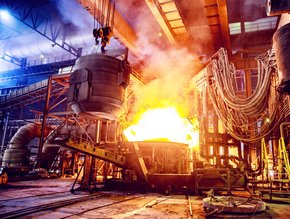Could the Ebola Crisis Cause Sierra Leone to Diversify from Mining?

The recent crisis in Sierra Leone involving the deadly Ebola virus could force the country to diversify from a mining-heavy economic base.
Chairman of the Chamber of Mines, John Bonoh Sisay, believes the signal for change is now, and it could be beneficial. According to the chairman, mining companies will have to change the way they interact with local people as well as place a greater emphasis on corporate social responsibility.
• London Mining Builds Treatment Center to Fight against Ebola Virus
• 3 Mining Companies that Contribute to HIV/AIDS Awareness and Prevention
“In the long term, it’s not a bad thing to mature the economy in that way. There are other opportunities especially in agriculture, which, from a stability point of view, really does create a lot of jobs very quickly [and the] skills base is minimal,” said Sisay, who is also chief executive officer of Sierra Rutile, a mineral sands producer with a rutile mine in the south-west.
The decline in iron ore has caused a shakeup in Sierra leone’s mining industry, which has also been devastated by costs association with the outbreak of Ebola.
“With the Ebola situation, we’ve … understood even more the importance of staying really connected with the wider community, and whilst it’s not our primary responsibility, we will focus more, from a CSR [corporate social responsibility] point of view, on public health issues, because obviously they have a direct impact on what we do and our operations,” Sisay said.
Over 9,700 people have been killed by the disease in the three worst-affected countries – Sierra Leone, Guinea and Liberia. Sources have suggested the three nations could lose out on more than $1.6 billion in lost output in 2015 alone, more than 12 percent of their combined gross domestic product.

In 2013, mining helped increase growth in Sierra Leone to 20 percent and ignited investor interest in the country. However, the industry has faced a wide range of criticism, including securing unduly favorable tax concessions from African governments desperate to harness resource wealth. In addition, local populations have become disillusioned with the benefits of mining projects.
Sisay believes the industry could do more to improve the transparency of contract negotiations.
“One of the realities we need to accept is that mining investment in some developing countries is a high-risk investment, and the market unfortunately will not lend you money below a certain NPV [net present value],” Sisay said. NPV is a technique used to estimate the value or net benefit over the lifetime of a project.
“Governments need that capital to come into country and so concessions are sometimes necessary. I do think there is a case to be made for transparency … so people can understand why and what’s in [the deals].”
- Galiano awards mining contract for Asanko Gold Mine in GhanaSupply Chain & Operations
- Caledonia Mining Corporation expands Zimbabwe portfolioSupply Chain & Operations
- CNMC's Project Deziwa realises China's 'Go Global' strategySupply Chain & Operations
- Africa's key minerals role in the energy transitionSustainability






